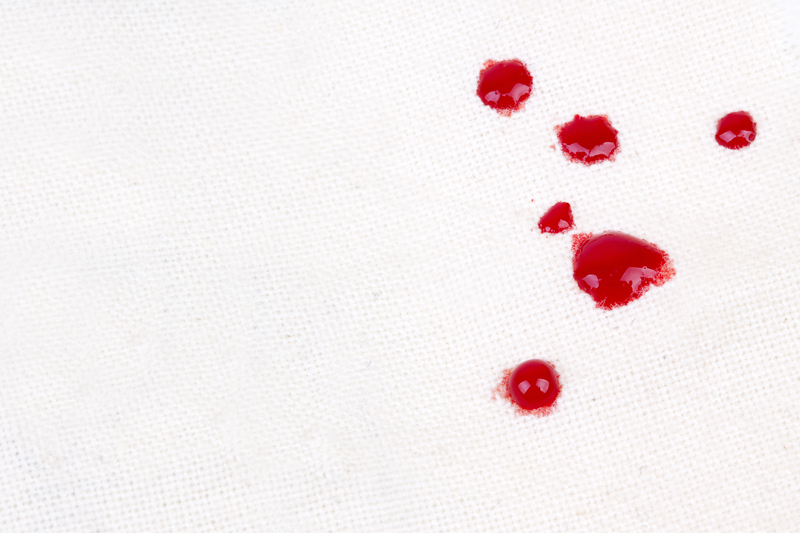Baking Soda for House Cleaning
Posted on 22/05/2025
Baking Soda for House Cleaning
Introduction
Baking soda, scientifically known as sodium bicarbonate, is a versatile and powerful cleaning agent that has long been used for various household purposes. Whether you're dealing with stubborn stains, unpleasant odors, or difficult-to-clean surfaces, baking soda is a natural, eco-friendly, and cost-effective solution that can tackle a myriad of cleaning challenges. In this article, we will explore multiple ways to use baking soda for house cleaning, discuss its pros and cons, and share useful tips and takeaways for maximizing its benefits.

Why Baking Soda Works
Baking soda's effectiveness as a cleaning agent comes from its chemical properties. When dissolved in water, it creates a mildly alkaline solution that can neutralize acids and break down grime and grease. Its abrasive texture also helps scrub surfaces without causing scratches. Moreover, baking soda is a natural deodorizer that absorbs and neutralizes unpleasant smells, making it ideal for use in various areas of the home.
Common Uses of Baking Soda for House Cleaning
1. Kitchen Cleaning
Cleaning Sinks: Sprinkle baking soda into the sink and scrub with a damp sponge. For tough stains, add a little vinegar.
Freshening Refrigerators: Place an open box of baking soda in the refrigerator to absorb odors. Change it every three months for best results.
Cleaning Ovens: Make a paste of baking soda and water, spread it on oven surfaces, let it sit overnight, and then scrub and wipe clean.
2. Bathroom Cleaning
Removing Mold and Mildew: Create a paste of baking soda and water, apply to affected areas, scrub with a brush, and rinse.
Deodorizing Toilets: Sprinkle baking soda into the toilet bowl, let it sit for an hour, then scrub and flush.
Cleaning Grout: Combine baking soda with hydrogen peroxide to form a paste, apply to grout lines, and scrub with a toothbrush.
3. General Household Cleaning
Carpet Deodorizing: Sprinkle baking soda onto carpets and let it sit for 15 minutes before vacuuming to neutralize odors.
Laundry Booster: Add half a cup of baking soda to your laundry detergent to enhance cleaning and deodorize clothes.
Surface Cleaning: Mix baking soda with liquid dish soap to create an all-purpose cleaner for countertops, tiles, and more.
Pros and Cons of Using Baking Soda for Cleaning
Pros
- Eco-friendly and non-toxic: Safe for children, pets, and the environment.
- Cost-effective: Much cheaper than commercial cleaning products.
- Versatile: Suitable for a wide range of cleaning tasks.
Cons
- May not be effective on very tough stains: Sometimes requires additional substances like vinegar or hydrogen peroxide.
- Abrasiveness: While generally safe, it can scratch delicate surfaces if not used carefully.
- Messy: Can leave residue if not properly rinsed.
Useful Tips
- Always patch test: Test baking soda on a small, inconspicuous area first to ensure it does not damage the surface.
- Combine with other natural cleaners: Use vinegar or lemon juice with baking soda for enhanced cleaning power.
- Store properly: Keep baking soda in a cool, dry place to maintain its effectiveness.

Takeaways
- Baking soda is a versatile, eco-friendly, and cost-effective cleaning agent.
- It can be used in various areas of the home, from the kitchen to the bathroom.
- While effective for many tasks, it has some limitations and should be used carefully.
Conclusion
Baking soda is an invaluable tool for house cleaning, offering a natural, safe, and cost-effective alternative to commercial cleaning products. Its versatility, combined with its ability to neutralize odors, remove stains, and clean surfaces, makes it a must-have in every household. By following the tips and advice provided in this article, you can leverage baking soda to maintain a clean and fresh home while being mindful of its limitations. Embrace this humble household staple to make your cleaning routine more efficient and environmentally friendly.
Latest Posts
AGA Cookers vs. Rayburn Cookers
Choosing the Best Carpet for Your Home
Eliminating Grease Stains on Clothes





